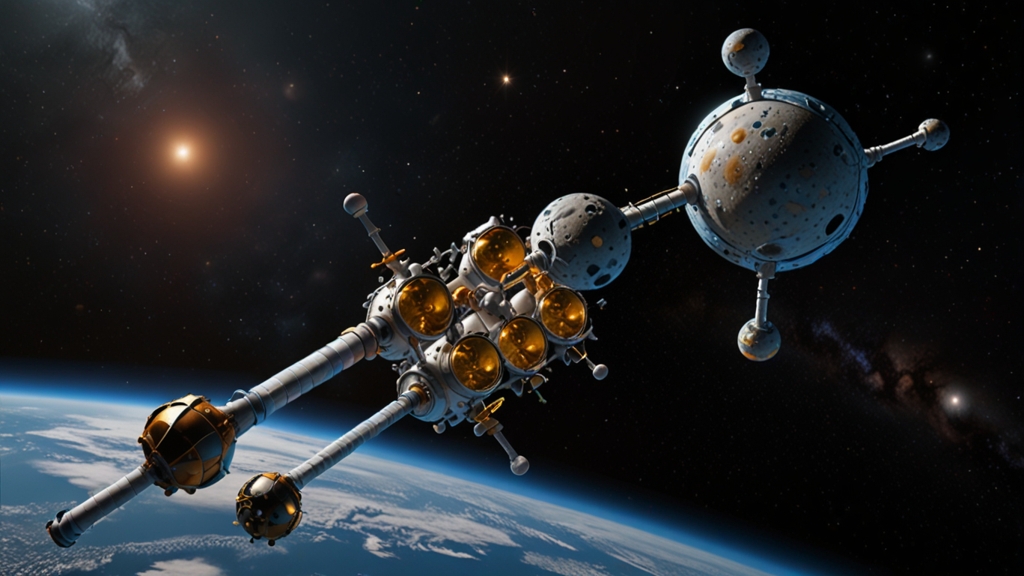Chemistry in Space: How Scientists Study Molecules Beyond Earth
The vast expanse of space has intrigued humanity for centuries, sparking questions about the fundamental nature of the universe. One of the intriguing fields within space science is astrochemistry, which explores how chemical processes take place in the cosmos. What molecules exist beyond Earth, how do they form, and what can they tell us about the origins of life? These questions drive scientists to develop innovative methods to study chemistry in the harsh and enigmatic environment of space.
Tools and Techniques in Astrochemistry
To study molecules beyond our planet, scientists rely on a variety of advanced tools and techniques. Instruments like telescopes, space probes, and spectrometers play pivotal roles in these investigations. The following methods are among the most significant:
“Astrochemistry bridges the gaps between astronomy, chemistry, and physics, employing a multitude of techniques borrowed from each discipline to analyze the universe’s chemical makeup.” – Dr. Jane Smith, Astrochemist
1. Spectroscopy
Spectroscopy is one of the primary methods used to study molecules in space. By analyzing the light that objects emit or absorb, scientists can identify the chemical components of distant stars, gas clouds, and planets. Each molecule has a unique spectral signature, much like a fingerprint, allowing researchers to detect its presence and concentration without physical samples.
2. Space Missions and Probes
Spacecraft and probes sent to other planets and moons often carry tools designed to conduct chemical analyses. For instance, NASA’s Mars rovers, like Curiosity and Perseverance, are equipped with instruments to study the Martian surface's molecular composition. These missions provide invaluable data about the presence of organic compounds and potential habitats for life.
“Rovers act as robotic chemists on other planets, giving us a hands-on approach to studying extraterrestrial environments and their chemistry.” – Dr. John Doe, Planetary Scientist
3. Laboratory Simulations and Experiments
While direct sampling from distant celestial bodies is beyond our current technological capabilities, scientists can simulate space conditions in laboratories here on Earth. These simulations allow researchers to study how molecules behave in the extreme environments found on other planets or in interstellar space. For instance, the effects of cosmic radiation on organic molecules can be studied in great detail, aiding in our understanding of the potential for life beyond Earth.
Significant Discoveries in Astrochemistry
Astrochemistry has led to several groundbreaking discoveries that have reshaped our understanding of the universe. Some of these include:
1. Organic Molecules in Space
Scientists have detected complex organic molecules, such as polycyclic aromatic hydrocarbons (PAHs), in various regions of space. These molecules are considered building blocks for life and suggest that the basic components for life can form in diverse cosmic environments.
2. Water in Unexpected Places
Water is essential for life as we know it, and its presence beyond Earth has been confirmed in various locations, including the Moon, Mars, Europa, and Enceladus. These discoveries hint at the possibility of habitable environments within our solar system.
3. The Interstellar Medium
The interstellar medium, composed of gas and dust, is teeming with chemical activity. Molecules like hydrogen, carbon monoxide, and even simple sugars have been identified. These findings help scientists understand the processes that lead to star and planetary system formation.
“The detection of complex organic molecules in the interstellar medium is a tantalizing clue to the processes that may lead to the emergence of life.” – Dr. Mary Johnson, Astrobiologist
The Future of Astrochemistry
The field of astrochemistry is continually evolving, driven by advancements in technology and methodology. Upcoming missions like the James Webb Space Telescope (JWST) and the Europa Clipper are expected to provide even more detailed insights into the chemistry of space. These missions will likely uncover new molecules and offer a deeper understanding of the conditions that could support life.
As scientists continue to explore the chemical cosmos, they edge closer to answering fundamental questions about our origins and the potential for life beyond Earth. Whether it's through direct observation, robotic exploration, or laboratory simulations, the study of chemistry in space unveils the intricate and dynamic nature of the universe.










